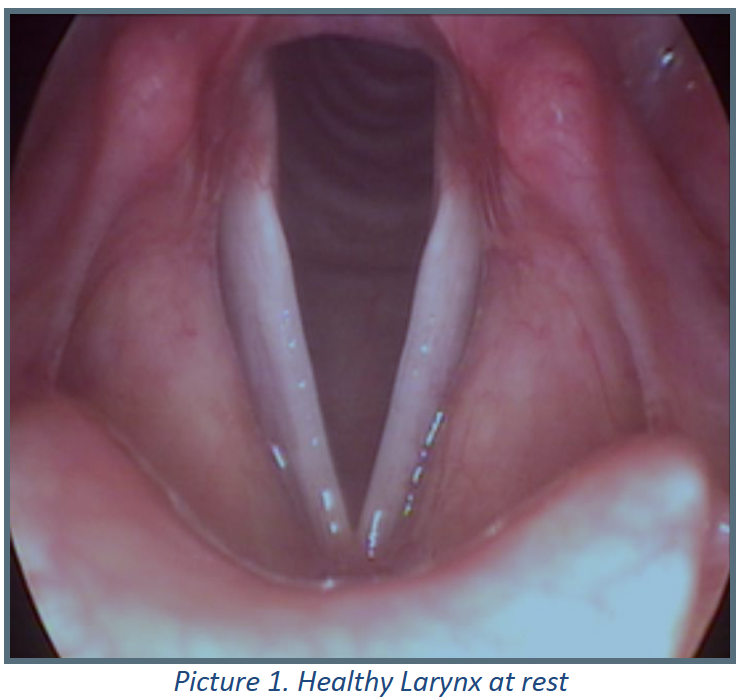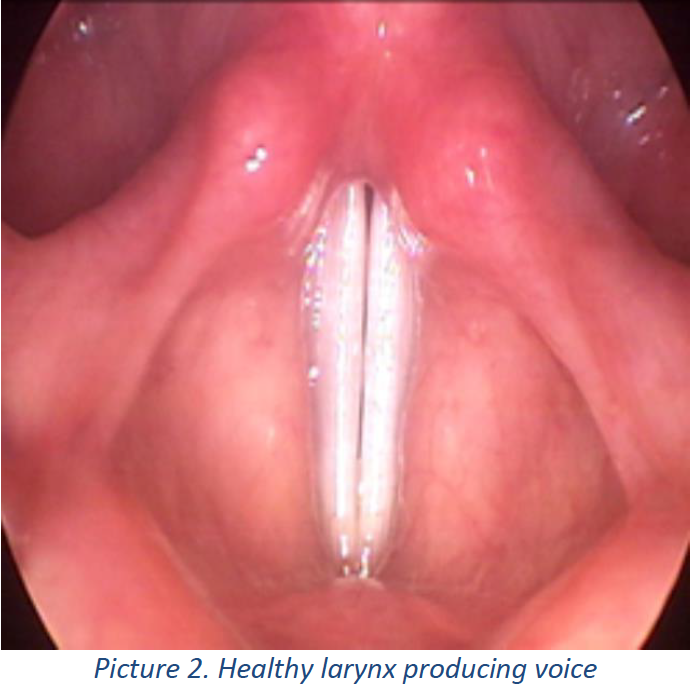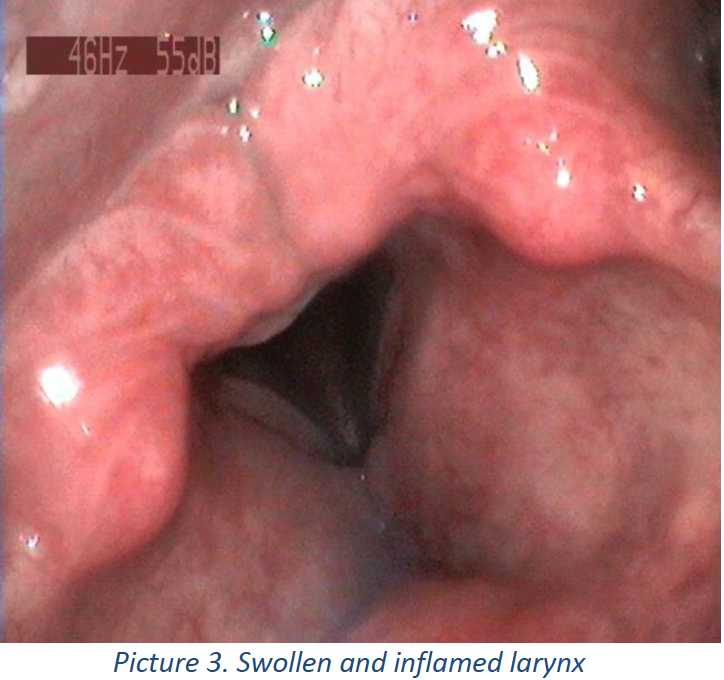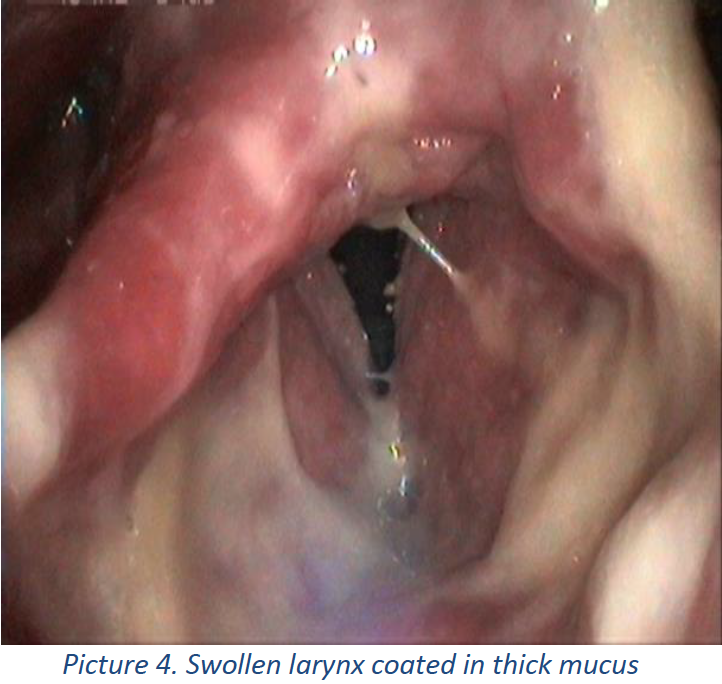This advice is compiled by a team of UK voice specialist Speech and Language Therapists.
As a result of the COVID-19 virus you may experience some temporary changes to the sound of your voice, and to your comfort and effort levels when using it. These changes are similar to the changes you would expect to experience with a cold or ‘flu, but are expected to be more intense and longer lasting. We anticipate that these voice problems may take 6 – 8 weeks to gradually resolve. The following advice will help your vocal recovery.
Why Has Your Voice Changed?
Vocal cords sit in the voice box (also known as your larynx or Adam’s apple) at the top of the wind pipe.
In order to produce voice, we bring the vocal cords together and gently blow air through them from the lungs below, which causes their delicate membranes to vibrate. This vibration is the sound of the human voice.
When you have COVID-19 you are likely to experience excessive and prolonged attacks of coughing. Coughing brings the vocal folds forcefully together to allow strong expulsion of air, clearing any mucus from your lungs and throat. This level of coughing gives the vocal cords quite a battering; consequently, they can become swollen and inflamed.
When vocal cords become swollen and inflamed, they become stiff and less flexible. This means that they are unable to vibrate freely, so the sound of the voice changes, often becoming rougher and deeper-pitched or possibly no more than a whisper. It can feel uncomfortable and hard work to speak when your vocal cords are in this state.
What Can You Do To Protect Your Vocal Cords And Help Them To Heal?
-Keep well hydrated. Drink 1½ – 2 litres (4 – 5 pints) of fluid that doesn’t contain caffeine or alcohol per day (unless advised otherwise by a doctor).
-Try gentle steaming with hot water (nothing added to the water). Breathe in and out gently through your nose or mouth. The steam should not be so hot that it brings on coughing.
-When the virus is at its peak, coughing is likely to be intense and unavoidable. However, once this stage of the illness passes, try to avoid persistent, deliberate throat clearing and, if you can’t prevent it, make it as gentle as possible. Taking small sips of cold water can help to supress the urge to cough.
-Chewing gum or sucking sweets can help promote saliva flow, which lubricates the throat and can help to reduce throat clearing. Avoid medicated lozenges and gargles, as these can contain ingredients that irritate the mucosal lining of the throat.
-You do not need to be on total voice rest, i.e. silent. Even in the early stages of the virus, when the voice is at its worst, using the vocal cords for a few short utterances every so often during the day keeps them mobilised, and this is a good thing.
-Always aim to use your normal voice. Don’t worry if all that comes out is a whisper or a croak; just avoid straining to force the voice to sound louder.
-Don’t deliberately choose to whisper; this does not “save” the voice; it puts the voice box under strain.
-Avoid smoking or vaping.
-Avoid attempting to talk over background noise such as music, television or car engine noise, as this causes you to try to raise the volume, which can be damaging.
-If your voice is no more than a whisper do not attempt telephone, online chat, or video conversations. Once the voice starts to improve, avoid prolonged (more than 5 minutes) conversations by telephone, online chat, or video. Try to use text-based options instead.
-You may notice that your voice fatigues more rapidly than normal. This is to be expected. Take a break from talking when you experience vocal fatigue; this gives the vocal cords time to recover.
-In addition to irritation from COVID-19, reflux can also irritate the throat. To minimise any possible reflux, avoid greasy foods and highly acidic foods and drinks such as; citrus fruits and juices, vinegar and pickles, tomatoes and tomato sauces, fizzy, caffeinated and alcoholic drinks etc. It can also be beneficial to take a liquid alginate (e.g. Gaviscon Advance) following meals and before bed.
-Until the voice has returned to normal it is best to avoid “athletic” vocal activities such as shouting and singing.
When to Consult Your GP
-If your voice has not completely returned to normal 6 – 8 weeks after starting with the COVID-19 virus symptoms, you should contact your GP practice, as you may require a referral to an ENT specialist Voice Clinic. (The British Voice Association has a list of UK Voice Clinics.
Please see the link below
-If you experience throat pain or difficulties swallowing food or drink which persists beyond six weeks after the onset of your COVID-19 symptoms, you should contact your GP practice, as you may require a referral to ENT.
-If, during the course of your illness, you had to be treated in hospital with a breathing tube in your throat, you may have different or prolonged problems with your voice or throat. Please speak to your GP if you are concerned, as you may require a referral to ENT.
-The experience of being very ill and possibly receiving treatment in hospital can be emotionally draining and, for some people, deeply upsetting. Our emotions and voice are closely linked, so it is worth being aware that emotional recovery and vocal recovery often progress hand-in-hand. Seek advice from your GP if you need more support.




